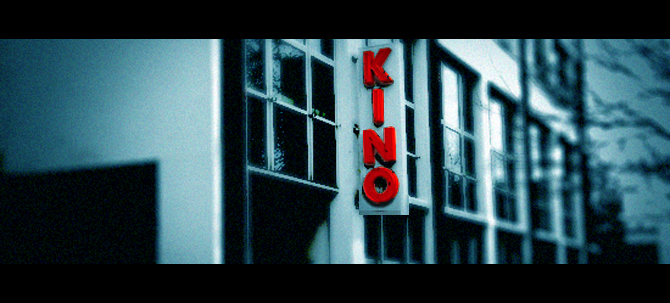Cinema of the Future 2012
New Strategies for a Neighbourhood Cinema.
The Eiszeit Arthouse Cinema in Kreuzberg as case study
University of Pennsylvania
Technical University Braunschweig
2 –10 March 2012
An initiative by ANCB The Aedes Metropolitan Laboratory in collaboration with Medienboard Berlin-Brandenburg and the project Berlinale goes Kiez by the 62nd International Film Festival Berlin.

STUDIO BRIEF
In order to set forth a notion of the cinema as a platform for social interaction, we looked at the Eiszeit Kino in the heart of Kreuzberg. Like most, if not all global cities, Berlin has developed an urban narrative that is most usually referred to as gentrification. This narrative is also a kind of transposition, in many cases, erasing personal, spatial and/or historical memory. This kind of transposition arguably creates a dwindling notion of public speech and public space.
With this in mind, can the cinema and its films become a space for knowledge production, as an Urban Think Tank, and a place for public speech, as an Urban Forum? Let us refer to that urban narrative, not as given, but as a film script, a formulaic condition that city development has come to rely on to guarantee financial, say, box-office success.
What would happen if we took this urban scale narrative, and subject it to the time-based tools and techniques of filmmaking: trajectory, transitions, flashback, foreshadow, etc. as architectural devices? How would they enhance the social structure of a neighbourhood? How would they support the process of contemplation on the street, in the lived world, and ultimately, how would it expand the programme and architecture of an Arthouse Cinema such as the Eiszeit Kino?
For the design studio we therefore asked the student teams to consider and develop these tools and use them to create an intervention that transforms the Eiszeit Kino, physically and programmatically, into a Think Tank for cinematic and biopolitical research and publishing. Simultaneously, the Think Tank had to contain a clear and immediate urban-scale intent, this in order to integrate itself, and reach out to the fast changing social landscape of Kreuzberg.
Studio Coordinators: Prof. Winka Dubbeldam, University of Pennsylvania with Todd Costain and Prof. Almut Grüntuch-Ernst, TU Braunschweig with Luis Berríos-Negrón and Kristien Ring
ANCB Programme
Theme
#identityinplace
Enquiry Programme
#knowledgespaces
Collaborative Project
#cinema
ANCB Partners

